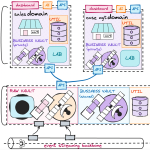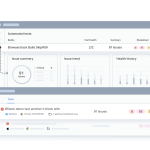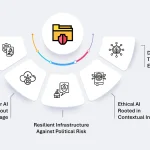
Whether you’re a small business or a large enterprise, Cloud Identity Services can benefit your organization in many ways. It can help you improve security, compliance, and scalability. Achieve these benefits with a strong identity and access management (IAM) strategy. Pair the strategy with a policy that aligns with your agency’s goals and mission. Identity and access management (IAM) determines who can securely access applications, infrastructure, and information. Cloud IAM helps you discover, protect and govern access to all data and applications across your organization’s multi-cloud environment. It makes compliance easy by automating routine tasks and reducing costs. Moreover, it reduces the need for in-house identity experts and increases the efficiency of security teams.
Scalability
What is cloud identity service? A Cloud Identity Service is a cloud-based security solution that provides user authentication, access management, and directory services to enable users to connect securely with the applications they need. It also allows administrators to manage users centrally and in groups, federate accounts across multiple identity providers, and provide better control over who has access to specific applications and resources.
As your organization grows, you can extend your Cloud Identity Service’s functionality without investing in additional hardware or software. You can leverage a unified user experience for all your users by integrating Single Sign-On (SSO) with your Cloud Identity Service. SSO reduces the number of passwords users need to remember and increases their ability to access critical business applications. Your users will enjoy the convenience of a frictionless login experience at e-commerce sites and across your organization’s network of services. This helps users save time and frustration and enables your employees to work more efficiently. To gain the benefits of an IDaaS migration within your organization, think through optional migration scenarios, generate and share user stories, and integrate them into a business case. This helps you build credibility and get support to move your identity infrastructure to the cloud.
Increased Security
As your company shifts to the cloud, you must be able to keep your data, applications, and users safe. Using Cloud Identity Service to manage these is one way to do just that. A cloud identity solution can increase your security by enhancing the use of strong authentication methods. These include two-factor authentication (2FA) and multifactor authentication (MFA), which verify a user’s identity using multiple authentication factors. These capabilities help reduce the reliance on passwords, which can lead to more breaches due to stolen credentials and phishing attacks. They can also streamline the login process by allowing users to use single sign-on, eliminating the need to remember different usernames and passwords whenever they need to access a new resource.
Moreover, leveraging a cloud identity service can make upgrades to your infrastructure more accessible and more cost-effective. Many cloud identity services come with subscription-based pricing, so you’ll only be paying for the features you need. Cloud identity management can also help organizations improve their overall productivity, which is especially useful for businesses with many employees and clients. Using cloud identity services can ensure that all business users have access to the resources they need to do their jobs without having to remember or manually enter their usernames and passwords.
Better Compliance
Cloud Identity Service offers a wide variety of benefits for your organization. These include enhanced security, cost savings, and improved customer experience. They also speed up deployment and upgrades. Many companies are moving their identity infrastructure to the cloud as a part of their digital transformation efforts. This saves them the expense of hiring employees and equipment. Regulatory compliance is crucial in choosing an IAM solution for your business. A centralized identity service reduces the risk of data loss and protects your company from fines. In addition, it provides a single set of credentials for accessing all of your apps and systems. It also allows you to add extra layers of protection with Multifactor Authentication. With a single solution for your identity and access management needs, you can simplify your access controls while staying up to date on new security protocols.
As your identity and access needs grow, you need a solution that can automatically identify risky cloud identities and entitlements and eliminate them at scale. This prevents lateral movement of misconfigured permissions and unauthorized access to your cloud environments.
Flexibility
The flexibility to control access to cloud services for your employees and non-users is a significant benefit of using a cloud identity service. This can be done through a combination of policies and continuous monitoring that checks whether the current user is the same as the user who was authenticated in the first place. With this type of control, you can create policies that allow or deny access to specific services based on where the user is coming from or how they connect. This can be done for internal and external use cases, so employees don’t have to remember multiple usernames and passwords. Managing identities and entitlements is a crucial aspect of security in the cloud, as misconfigured or excessive permissions can result in an attack or catastrophic breach.









